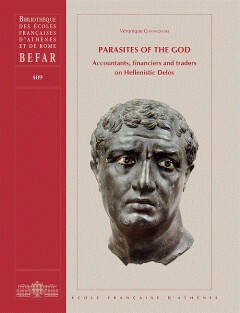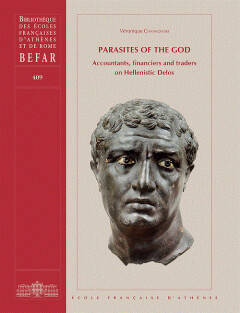
- Afhalen na 1 uur in een winkel met voorraad
- Gratis thuislevering in België vanaf € 30
- Ruim aanbod met 7 miljoen producten
- Afhalen na 1 uur in een winkel met voorraad
- Gratis thuislevering in België vanaf € 30
- Ruim aanbod met 7 miljoen producten
Zoeken
€ 68,90
+ 137 punten
Uitvoering
Omschrijving
Freed from Athenian tutelage in 314 BC, at a time of geopolitical changes that marked the beginnings of the Hellenistic period in the Aegean world, Delos gradually consolidated its political and economic independence. During the third and second centuries, the Delian community redefined the central place that the island had continually occupied in the economic, financial and cultural flows of the Mediterranean. This study, mainly based on epigraphic accounting sources, including more than five hundred accounts and engraved inventories that were displayed in the sanctuary of Apollo, but also on numismatic sources and archaeological remains on the seafront, re-considers the question of Delos' place in the Hellenistic economy. Far from being an exception to be excluded from serialized comparisons, the Delian evidence is indicative of Aegean economic circumstances and demonstrates the capacities of the Greek communities to adapt to change in troubled times. Behind the numbers cut in stone appear human communities and societies whose economic activities shed fresh light on the history of this part of the Mediterranean.
Specificaties
Betrokkenen
- Auteur(s):
- Uitgeverij:
Inhoud
- Aantal bladzijden:
- 451
- Taal:
- Engels
- Reeks:
- Reeksnummer:
- nr. 409
Eigenschappen
- Productcode (EAN):
- 9782869586116
- Verschijningsdatum:
- 31/12/2023
- Uitvoering:
- Hardcover
- Formaat:
- Genaaid
- Afmetingen:
- 220 mm x 310 mm
- Gewicht:
- 1719 g

Alleen bij Standaard Boekhandel
+ 137 punten op je klantenkaart van Standaard Boekhandel
Beoordelingen
We publiceren alleen reviews die voldoen aan de voorwaarden voor reviews. Bekijk onze voorwaarden voor reviews.











